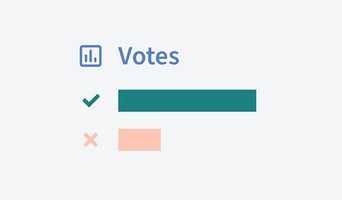Start the Recruitment Process in the Right Place
Whether your board is expanding or replacing a member, searching for a new board member can be a little complicated. Fortunately, most boards implement staggered terms to prevent a mass turnover event at the same time. Staggering board member terms also helps to keep a power balance within the board of directors. Recruiting board members is often a continuous and sometimes arduous process. Rather than bringing in personal friends or previous connections to streamline the board member recruitment process, boards should focus on making the best possible placement. The following categories of questions will help your board assess its needs and the director candidate in the interview process. Building the most qualified board for your organization will put the organization on the path to success.
Areas for the Board to Consider
What skill sets will benefit the board in the long term?
As you consider your organization’s needs, pay attention to the skill sets that will push you forward strategically. Focus on those skill sets when you are recruiting your next member. By focusing on skills over titles, boards can become better engaged with their strategy. Looking beyond retired CEOs for the needed expertise forces the board to go beyond their comfort zone and find diverse candidates who could be an even better fit for the organization’s strategic objectives. Eliminating the focus on titles opens the door to new directors who otherwise would not be considered.
Should you be considering a more diverse pool of candidates?
Diversifying board composition is a trending topic in the corporate governance community to facilitate building better boards of directors. This focus includes broadening board composition with diversity regarding gender, ethnic, and racial backgrounds. When asking this question of a board, the goal is not to check a few diversity boxes. The goal is to have an inclusive and diverse representation of your organization and those that you serve.
For more information on building diversity in the boardroom check out these resources: The Definitive Guide to Diversifying Your Board Composition and Informed Diversity Discussions in the Boardroom
What are your qualification requirements?
Your board is likely composed mostly of people who have participated on a board of directors in the past. Previous director experience is beneficial to a board composition because it can eliminate much of the learning curve and allows for fast onboarding. However, the more boards reach beyond their sphere of current board members, the more opportunities to consider diversity. A candidate without prior board experience may require a lengthier onboarding process, but they also bring a fresh perspective and new ideas to your boardroom conversations.
Going into the recruitment process with a full understanding of your requirements for the position will make selecting the right candidate easier. In making your final assessment of a candidate, keep in mind that less qualified applicants may have strong potential to grow into the position with the help of a board mentor.
Discussion Topics for Board Member Interview
Qualifications and Suitability
Qualifications will help you rate their experience, success, achievements, levels of responsibilities, and exposure to a requisite range of circumstances that would benefit your company. Evaluating a candidate’s suitability opens up the conversation of the person’s potential chemistry with the other board members and stakeholders like management, ownership, and outside consultants.
Connections and Networking
Understanding whether a board member is a competent networker in social situations can be crucial for smaller boards or organizations searching for funding. Considering the connections the potential director can bring to the table can help a board identify if this person may be useful for a particular goal or objective. Having the right connections in the world of business can tip the scales for future growth.
Discussing past connections should also lead to a conversation about conflicts of interest. It is imperative to identify any possible conflicts of interest your candidate may have before bringing them onto the board. Knowing potential conflicts of interest might be an excellent deciding factor when interviewing multiple candidates for any board openings.
Passion and Commitment
Potential board members are generally drawn to an organization because of their passion for the organization’s work. Strengths, passion, and fit are benchmarks of a strong board candidate. Evaluating if their passion aligns with the current board members is essential to create a board pool that meshes well together.
If you are considering board candidates without prior board member experience, ensure they understand the commitment being a part of this board will entail. Laying out the financial and legal commitments board members are expected to make before finalizing a candidate can prevent possibly catastrophic misunderstandings.
For a comprehensive list of specific questions to ask in your next board member interview, check out What to Ask a Prospective Board Member by Dennis Cagan.
Are You Ready to Transform Your Board?
Govenda is the board portal solution that perfectly blends security, functionality, user experience, and affordability. Fast, intuitive, and flexible, Govenda gives companies the control they require and support when needed. Designed with input from corporate secretaries, administrators, and board members to enhance board engagement, effectiveness, and governance, Govenda is used by companies worldwide.
Start a conversation today!
Other posts you might be interested in
View All Posts
Board Directors Love Board Portals - Most of the Time
Read More
How to Conduct a Board Portal Software Comparison
Read More
Best Practices for Board of Directors Voting Procedures in the Digital Era
Read MoreSubscribe to email updates
Get updates delivered directly to your inbox.